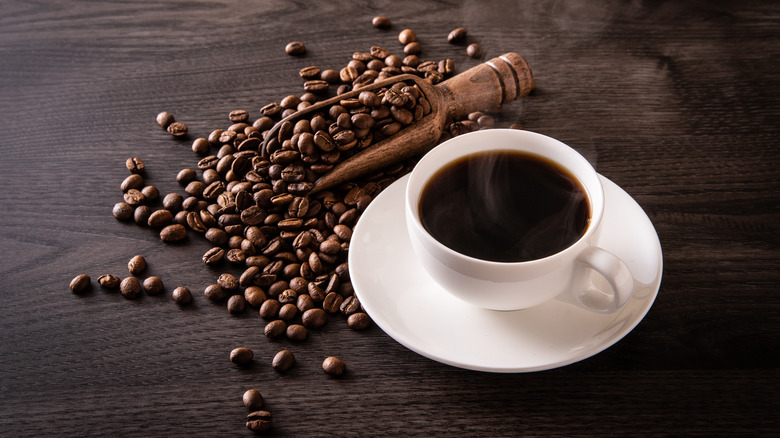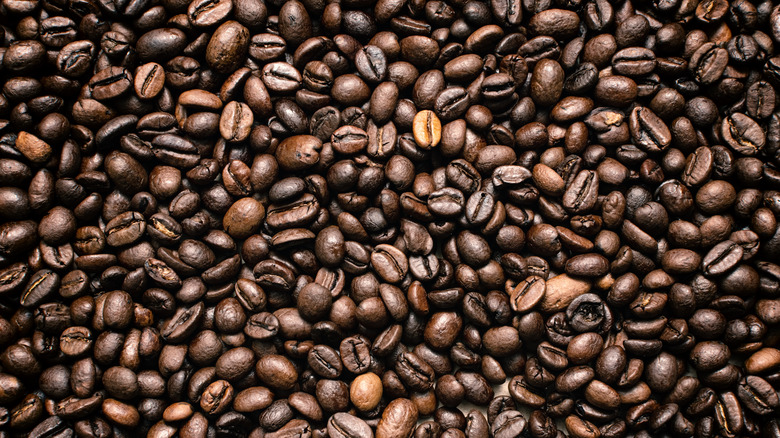Why Your Coffee Might Taste Different In 2022
If you love coffee, you're living a golden age, one in which even small towns boast one or two excellent coffee shops (via PR Newswire). Even if you're a make-your-coffee-at-home type, it's easier than ever to snag specialized equipment such as digital coffee grinders, AeroPress and Chemex brewing systems, and, of course, excellent beans, from Portland, Oregon's Water Avenue roasts to New York's Stone Street cold brew (via The Manual). Here at Mashed, we love our brew, too, whether it be Starbucks-style pumpkin lattes, frothy Dalgona coffee, or a simple cup of drip.
Since the new millennium, we've been in what's called the "Third Wave" of coffee, which refers to a general uptick in the interest and intent behind growing, sourcing, roasting, grinding, and brewing beans. As Perfect Daily Grind notes, this has resulted in a much higher quality of coffee that's also more accessible. But the Third Wave, which has typically utilized a certain type of coffee bean, is now changing in a way that may also change the flavor of the coffee in your morning mug.
A new bean in town
If you love sipping coffee, chances are you expect a good brew to taste a certain way: smooth, and, depending on the particular roast, with pleasant notes of chocolate, sweetness, or fruitiness. That's the flavor profile of arabica coffee beans, according to Perk Coffee, which is the variety of coffee grown by about 60% of the world's java producers. It's the type that has defined coffee's so-called Third Wave — but it's slowly being joined by another type of bean that, well, just doesn't taste as good.
According to the New York Times, climate change is threatening arabica coffee, making it harder to grow successfully and driving up prices on the harvests that do make it market. As a result, more and more of the world's coffee producers are now planting robusta, a heartier plant that is more resistant to both pests and disease. However, robusta beans don't have as desirable a flavor profile as arabica: they tend to be much more bitter, and are also much higher in caffeine. So if, over the coming year, the brew in your cup isn't as smooth as what you're used to — and gives you a much bigger jolt — check the bag to see if it's robusta, and you'll know why.

